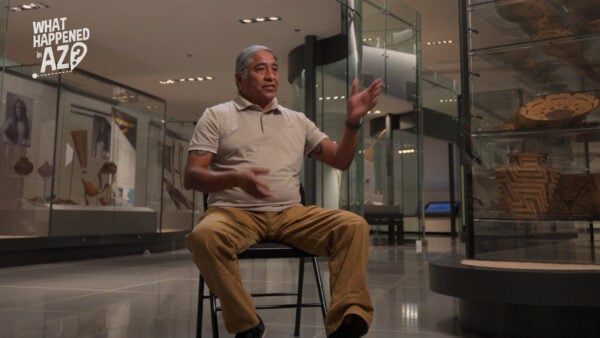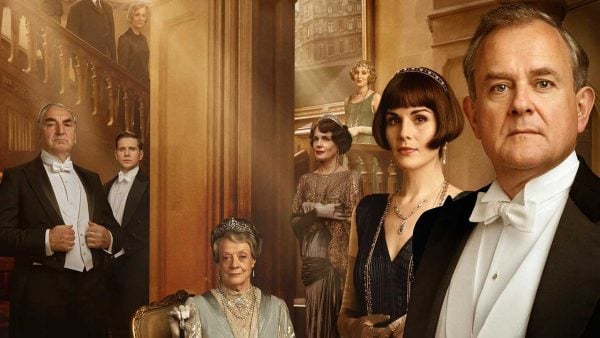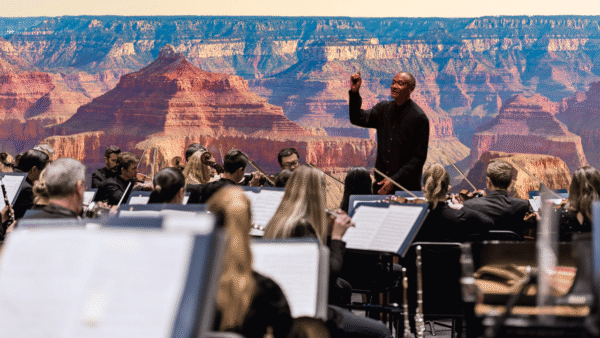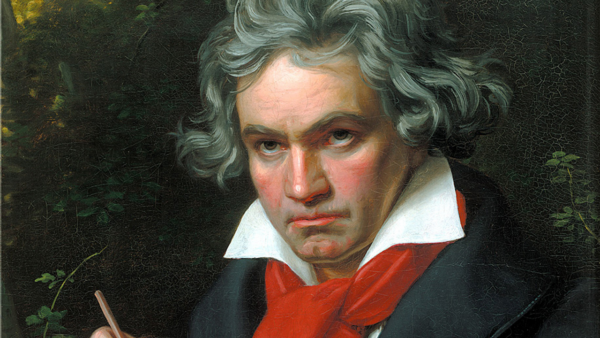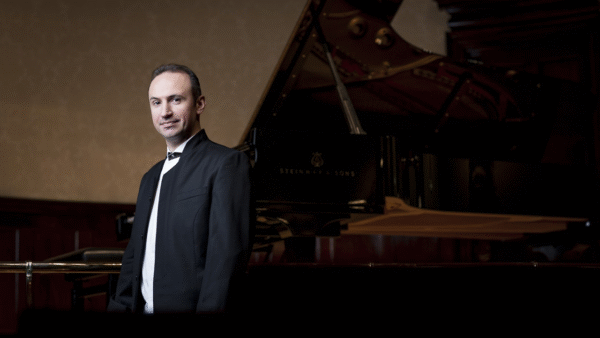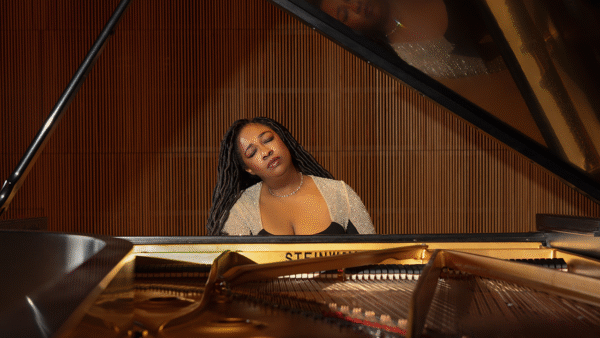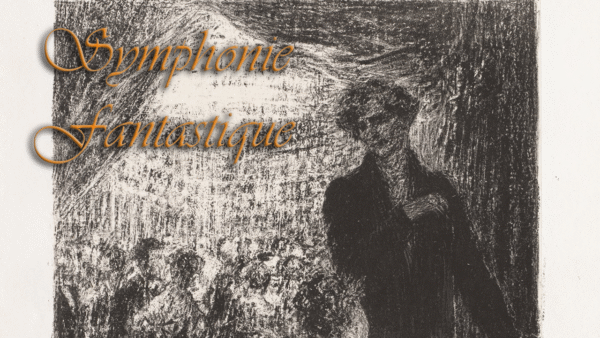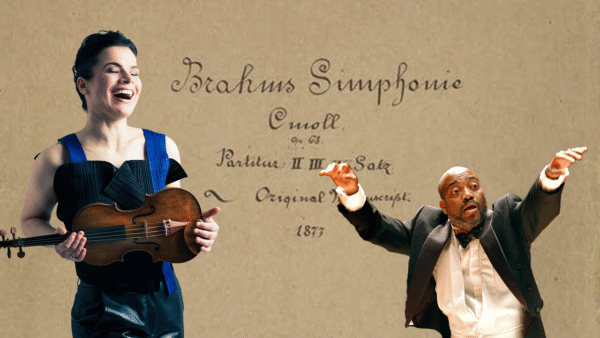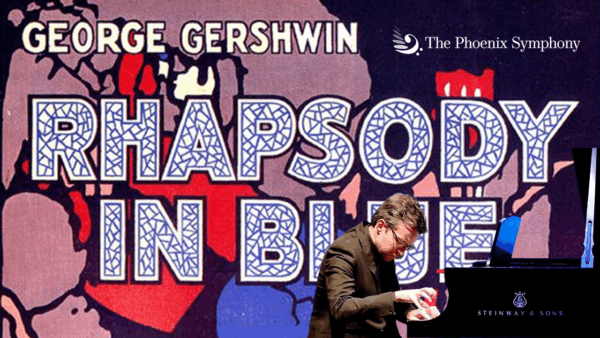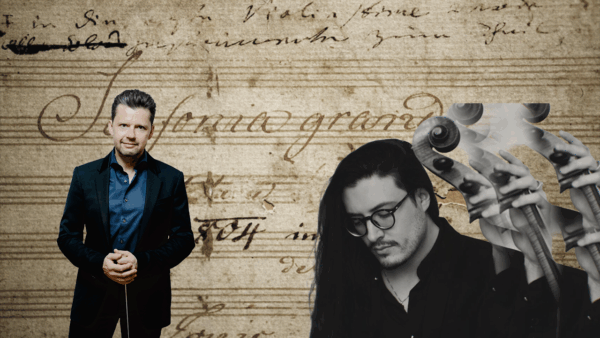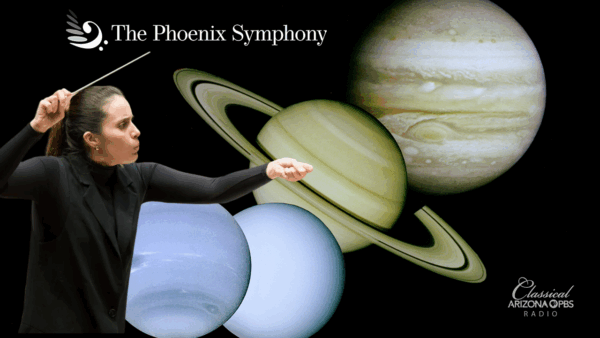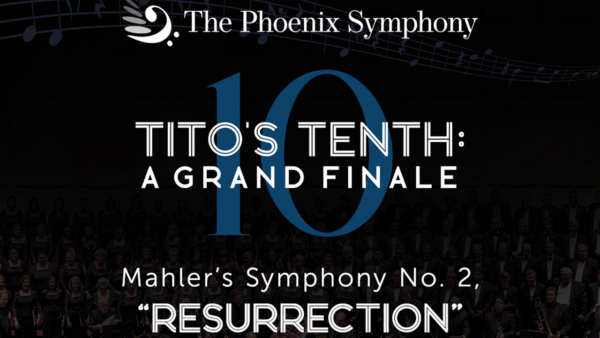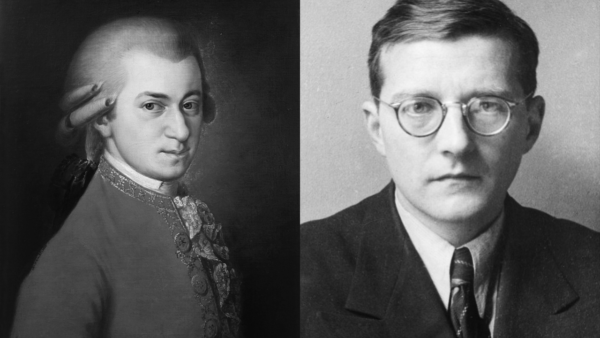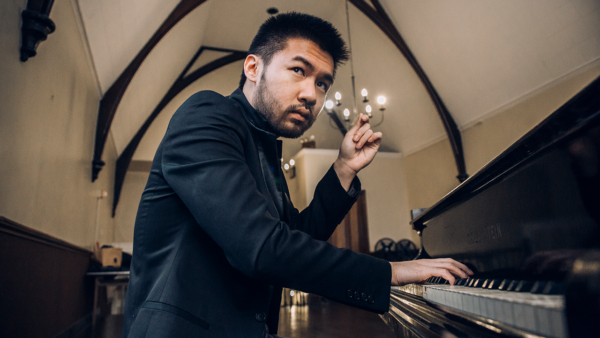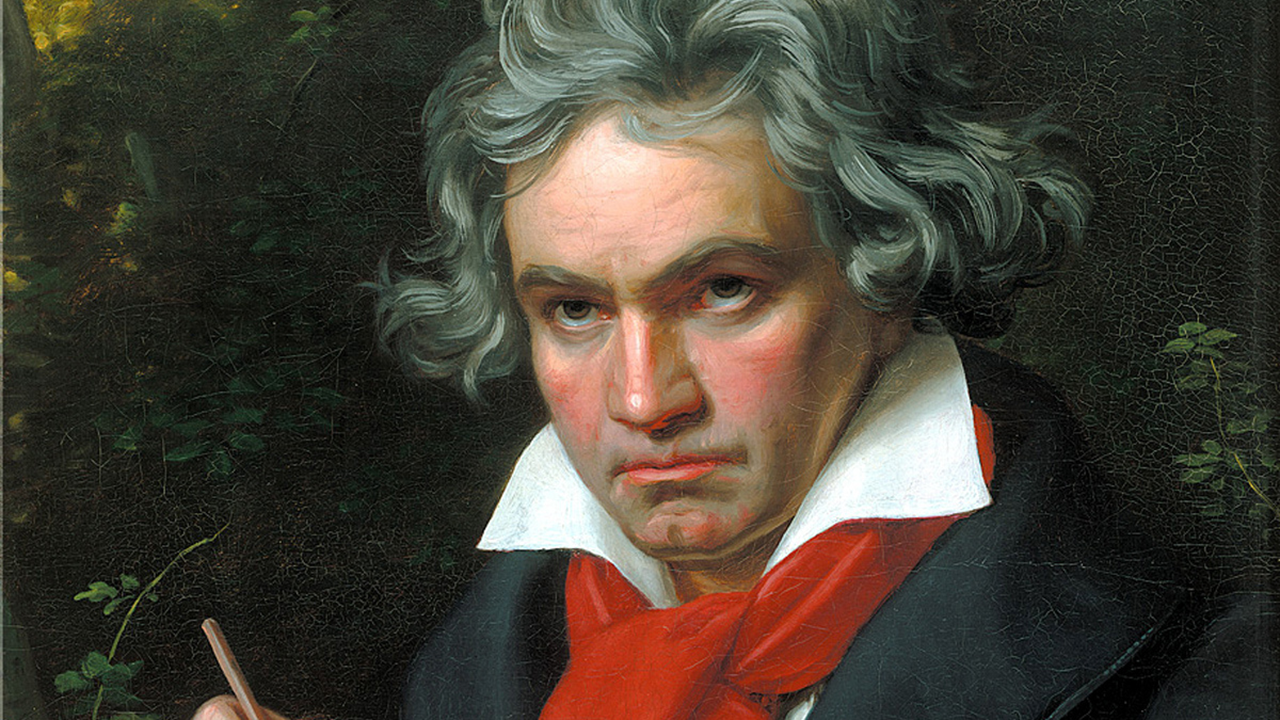
Beethoven’s Ninth Symphony
Nov. 26, 2025
Beethoven’s Ninth Symphony is one of those rare creations that transcend their time and circumstance. It is not only the culminating masterpiece of his career, but also one of the central achievements in the history of music—a work that changed the way composers, audiences, and entire cultures thought about what a symphony could be. This performance by The Phoenix Symphony, led by Artistic Partner Tito Muñoz, presents that monumental work alongside Paul Hindemith’s spirited Symphonic Metamorphosis on Themes by Carl Maria von Weber. Together, these two pieces—one born of exile, the other of transcendence—show the endurance of creativity even in the face of upheaval.
Hindemith’s Symphonic Metamorphosis is a radiant transformation of borrowed ideas into something unmistakably his own. Conceived during his early years in America after fleeing Nazi Germany, the work takes music by Carl Maria von Weber and refashions it with rhythmic vitality, contrapuntal brilliance, and orchestral color that are pure Hindemith. His first movement propels Weber’s piano duet into a fiery Allegro, the scherzo evokes the exotic world of Turandot through inventive percussion, and the finale concludes with a bold, brassy march. The piece celebrates imagination and reinvention—qualities that would have resonated with Beethoven himself, who also knew how to turn tradition into revolution.
If Hindemith’s score brims with wit and vigor, Beethoven’s Symphony No. 9 in D minor, Opus 125, carries us into the realm of the sublime. Written in the final years of his life, after nearly a decade of silence in the symphonic form, the Ninth was a work of both reflection and rebirth. Deaf, ailing, and often isolated, Beethoven created a piece that encompasses the totality of human experience—struggle, grief, hope, and ultimately joy. When it premiered in Vienna on May 7, 1824, with the composer unable to hear a note of it, the audience’s ovation lasted so long that one of the singers had to turn him around to see their applause. It was the triumph of a man who could no longer hear but who had learned to listen inwardly to the eternal.
The Ninth begins in mystery. Bare open fifths emerge from silence, as if the symphony itself is being born from chaos. The music swells with gathering energy, launching one of the most powerful first movements ever written—a cosmic drama of conflict and creation. The second movement, a driving scherzo, is equally astonishing: rhythmically relentless, full of percussive accents and fugal complexity. The contrast comes in the Adagio, a movement of pure serenity whose twin themes unfold like meditations on love and compassion. It is one of Beethoven’s most intimate and spiritual utterances, hovering between the human and the divine.
The finale begins in disarray, with the orchestra revisiting themes from the previous movements before rejecting them in favor of something entirely new. Out of this turmoil, the low strings introduce a simple, stepwise melody—the “Ode to Joy.” What begins as a whisper grows into an anthem. When the baritone enters with the words “O Freunde, nicht diese Töne!” (“O friends, not these sounds!”), the symphony crosses a boundary no composer had dared to approach: instrumental music gives way to the human voice. The choral setting of Friedrich Schiller’s poem unfolds as a vast set of variations that builds from quiet confidence to radiant exaltation, ending not in individual triumph but in a vision of shared humanity.
The “Ode to Joy” is more than a theme; it is a declaration of belief. Beethoven, who had known loneliness, illness, and despair, gives us music that insists on joy—not as naïve happiness, but as a hard-won victory over suffering. Its impact has extended far beyond the concert hall, serving as a symbol of unity and hope for generations, from political movements to celebrations of peace.
Tito Muñoz, conducting this performance, brings deep insight and eloquence to the podium. After ten transformative years as Music Director of The Phoenix Symphony, he now continues his artistic leadership as the orchestra’s Artistic Partner. Known for his technical clarity and adventurous programming, Muñoz has built a distinguished international career, with engagements that include the Opéra National de Lorraine in France, the Cleveland Orchestra, and major music festivals across North America. His artistry lies in balancing precision with warmth—qualities ideally suited to Beethoven’s Ninth, where structure and spirit must coexist in perfect proportion.
The vocal quartet features four distinguished soloists whose artistry gives voice to Beethoven’s immortal vision. Soprano Felicia Moore has been hailed for her radiant tone and commanding presence in leading roles at major opera houses. Mezzo-soprano Briana Elyse Hunter brings expressive richness and emotional honesty to her performances, equally at home in classic and contemporary repertoire. Tenor Miles Mykkanen is celebrated for his soaring lyricism and versatility across styles, while baritone Norman Garrett lends a noble resonance and expressive strength to every phrase. Together with The Phoenix Symphony and Chorus, they embody the unity Beethoven sought to express through music.
To hear Beethoven’s Ninth is to stand in the presence of something larger than art itself. It is a reminder of the human capacity for perseverance, empathy, and joy. And when paired with Hindemith’s exuberant Symphonic Metamorphosis, the program becomes a celebration of transformation—of ideas, of sound, and of the spirit.
Hear the next broadcast of The Phoenix Symphony every Wednesday evening at 7:00 on KNAU Arizona Public Radio, on DTV 8.5 Classical Arizona PBS, and on Classical 89.5 KBACH.
Featured in this episode:
Hindemith – Symphonic Metamorphosis
- I. Allegro
- II. Scherzo (Turandot): Moderato – Lively
- III. Andantino
- IV. Marsch
Beethoven – Symphony No. 9, “Choral” – featuring The Phoenix Symphony Chorus
- I. Allegro ma non troppo, un poco maestoso
- II. Molto vivace
- III. Adagio molto e cantabile
- IV. Finale
Beethoven – Leonore Overture – ASU Symphony; Jeffery Meyer, conductor


